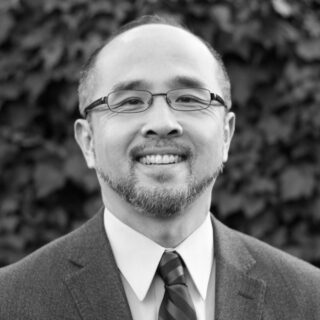3 days / 70+ speakers
80+ lectures, seminars, and workshops
National Symposium for Classical Education
February 22-24, 2023

Francis Su
Francis Edward Su received his B.S. in Mathematics from the University of Texas at Austin and his Ph.D. from Harvard University. His research is in geometric combinatorics and applications to the social sciences and he has co-authored numerous papers with undergraduates. He also has a passion for teaching and popularizing mathematics through writing and public engagement. From the Mathematical Association of America, he received the 2013 Haimo Award for distinguished teaching and the 2018 Halmos-Ford Award for his mathematical writing. He authors the popular Math Fun Facts website and is creator of “MathFeed,” the math news app. His work has been featured in Quanta Magazine, Wired, and The New York Times. His book Mathematics for Human Flourishing (Yale University Press, 2020) won the 2021 Euler Book Prize. It is an inclusive vision of what math is, who it’s for, and why anyone should learn it.
On a personal note, Francis doesn’t believe his accomplishments give him dignity, though he understands that society uses them to establish credibility. He says, “My family and best friends could care less about my resumé, and they love me with all my faults. This grace centers me, and it’s a reflection of a divine love that grounds human dignity in a source distinct from anything we do. This love also calls to me to defend the dignity of others, which I strive to do through my teaching and my writing.”
SESSIONS:
Build Mathematical Virtues, Not Just Skills
Math is often thought of as a set of skills to master. While important, what often gets lost in the drive to master skills are the parts of math that make math enjoyable, that build virtues that will serve students no matter what profession they enter. When an employer hires a math major, it’s usually not because they want someone who can compute speedily or factor a polynomial expression. What they want are people with certain virtues such as curiosity, persistence, imagination, an ability to change perspectives, a competence to solve problems they’ve never seen before. Broadening the purposes of math in this way—towards human flourishing—allows more equitable.
Making Your Math Course Feel More Human (lower school/K-5)
We’re all human beings, aren’t we? And yet sometimes math classes don’t seem to embrace our humanness. In this workshop, we’ll work on practical ways to shape your courses to meet human desires for beauty, exploration, play, and truth. We’ll discuss ways to encourage the development of mathematical virtues, not just skills, and we’ll develop ways to assess these things. This workshop will focus on Grades K-5.
Making Your Math Course Feel More Human (upper school/6-12)
We’re all human beings, aren’t we? And yet sometimes math classes don’t seem to embrace our humanness. In this workshop, we’ll work on practical ways to shape your courses to meet human desires for beauty, exploration, play, and truth. We’ll discuss ways to encourage the development of mathematical virtues, not just skills, and we’ll develop ways to assess these things. This workshop will focus on Grades 6-12.
